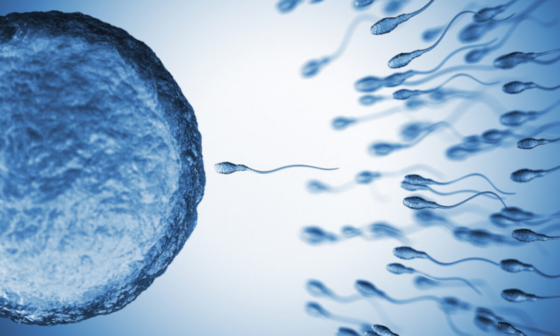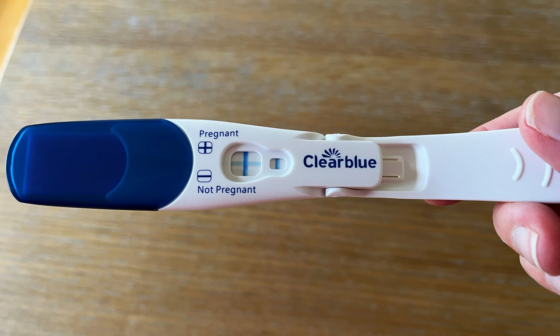When it comes to determining pregnancy, the timing of taking a test can make a significant difference in getting accurate results. Knowing when to take a pregnancy test helps avoid false negatives and ensures you get answers as soon as possible. In this guide, we’ll explore how pregnancy tests work, the best time to take them, and the factors that can affect accuracy.
Understanding How Pregnancy Tests Work
Pregnancy tests work by detecting the hormone human chorionic gonadotropin (hCG), which is produced once a fertilized egg implants itself in the uterus. This hormone starts to build up in the body and can be detected in both urine and blood. Home pregnancy tests are designed to detect hCG in urine, while medical providers can conduct blood tests for hCG, which may detect pregnancy earlier but require a clinic visit.
When Does Implantation Occur?
After intercourse, fertilization (when sperm meets egg) can occur if you’re in your fertile window. However, implantation, when the fertilized egg attaches to the uterus, usually takes between 6 to 12 days after ovulation. Only after implantation does the body start producing detectable levels of hCG. Thus, taking a test too soon after intercourse may not yield accurate results, as hCG levels might not be high enough yet.
Best Time to Take a Pregnancy Test
1. Testing After a Missed Period
Most health professionals recommend waiting until after your missed period to take a pregnancy test. For women with regular cycles, a missed period is a reliable first indicator of possible pregnancy. Taking a test on the first day after a missed period provides the highest accuracy, as hCG levels are typically high enough to be detected by most home pregnancy tests.
2. Early Detection Tests
For those who are anxious to know, there are early detection tests on the market that claim to identify pregnancy as early as 5-6 days before a missed period. These tests are more sensitive to hCG but may not always be accurate, as hCG levels can vary significantly between individuals. Even with an early test, there is a chance of receiving a false negative if hCG levels are not high enough.
3. Testing Based on Ovulation and Irregular Cycles
If you have an irregular menstrual cycle, predicting ovulation and implantation timing may be challenging. For irregular cycles, it is generally recommended to wait at least 21 days after intercourse to take a pregnancy test. This period allows enough time for implantation and the buildup of detectable hCG levels, reducing the likelihood of a false negative.
Types of Pregnancy Tests: Urine vs. Blood
1. Urine Tests
Home pregnancy tests are the most convenient and accessible option. They can usually detect pregnancy accurately when taken on or after the first day of a missed period. Using your first-morning urine can improve accuracy because hCG concentration is generally highest at this time.
2. Blood Tests
Blood tests for pregnancy are more sensitive than urine tests and can detect lower levels of hCG, potentially identifying pregnancy as early as 10 days post-ovulation. While more accurate, these tests are not commonly necessary unless there’s a medical reason, such as fertility treatments or early pregnancy symptoms without a missed period.
Common Misconceptions About Testing Too Early
Taking a pregnancy test immediately after intercourse can be tempting, but it’s important to understand that results may not be reliable right away. False negatives are common with early testing, as hCG levels may not be high enough to register on a test.
Factors Affecting Test Results
- Timing of Ovulation: Variations in ovulation timing affect implantation and hCG production. Ovulating later than usual may delay hCG production.
- Time of Day: Morning urine is generally more concentrated, providing a more reliable result.
- Hydration Levels: Drinking too much liquid before taking the test can dilute urine, affecting test accuracy.
- Expired Tests: Using an expired pregnancy test may give inaccurate results, so always check the expiration date.
Frequently Asked Questions
1. Can You Take a Test Right After Intercourse?
No, taking a pregnancy test immediately after intercourse is too soon. It takes days for fertilization, implantation, and hCG production to occur. Waiting at least a few days after a missed period ensures the most accurate results.
2. What if I Have Pregnancy Symptoms Before My Period?
Early pregnancy symptoms, like fatigue, nausea, or breast tenderness, may prompt testing, but remember that these symptoms can also be related to premenstrual syndrome (PMS). It’s best to wait until after a missed period or at least 10-12 days post-ovulation if symptoms are persistent.
3. When to Consider a Blood Test Over a Home Test?
A blood test might be helpful if you’re undergoing fertility treatments or have specific medical reasons to confirm a pregnancy as soon as possible. Blood tests can detect pregnancy slightly earlier than urine tests, but they are generally not needed for routine confirmation.
Next Steps After Receiving Test Results
Positive Result:
A positive result indicates pregnancy, and your next step is to consult with a healthcare provider. They will likely confirm the pregnancy and schedule initial prenatal appointments. They may also discuss lifestyle adjustments for early pregnancy, such as taking prenatal vitamins, following a balanced diet, and avoiding certain medications.
Negative Result But No Period?
If your test is negative but your period hasn’t started, wait a few days and try again. In cases of low hCG levels or late ovulation, it might take longer to detect pregnancy. If multiple tests are negative but you continue to miss periods, consult a healthcare provider to explore possible reasons.
Conclusion
For most accurate results, taking a pregnancy test on the first day after a missed period is recommended. Early detection tests are an option but may yield false negatives if taken too soon. Understanding how pregnancy tests work and following best practices for timing can help you avoid unnecessary stress and get reliable answers sooner.
Whether you’re testing for peace of mind or as part of family planning, knowing when and how to take a pregnancy test can make all the difference in getting the clarity you need.






